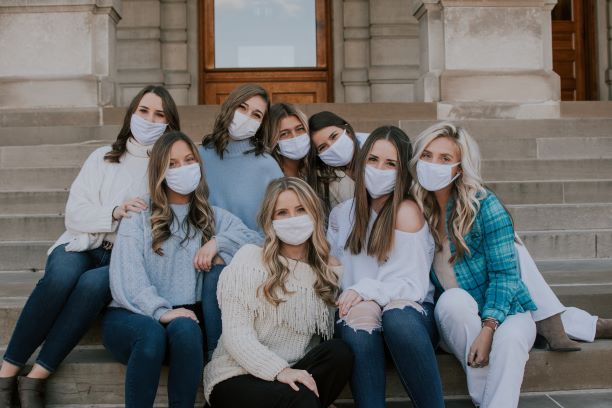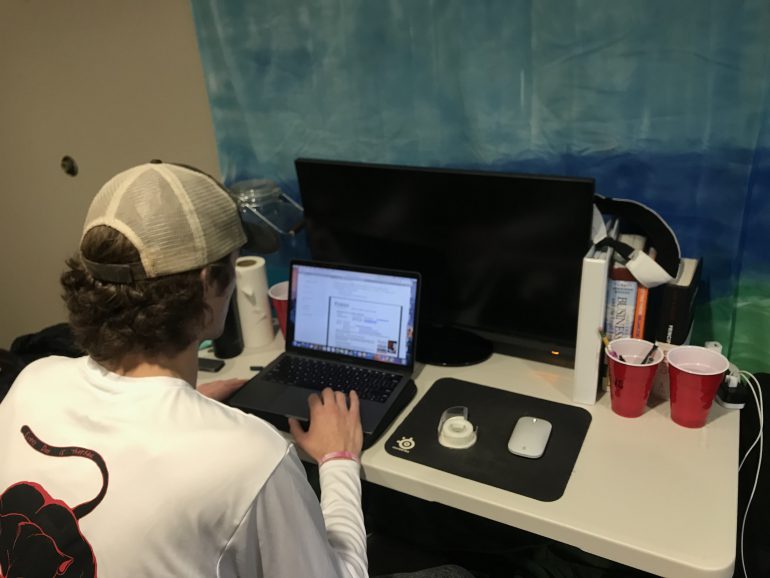
The Gist of Germs: The Importance of Proper Handwashing
Washing your hands is one of the basics of hygiene that we often do without thinking. It was heavily emphasized during the pandemic and continues to be a major prevention of contamination. Handwashing is critical in healthcare careers since many personnel come into direct contact with the patient. The personnel must be trained in handwashing technique to ensure that all areas of the hand are cleaned. This makes learning the skill an important step in a person’s career. That is why Pearson has taken extraordinary measures to make an excellent handwashing simulation.
Handwashing Education
During the Fall of 2021, still in the height of the pandemic, I was taking Microbiology I and training to be a certified nursing assistant. Every day I learned about ten new diseases that could be on my hands at any given moment. Simultaneously, my nursing instructor would stand over my shoulder timing me while I washed my hands. The ticking of the watch made me so nervous that I was shaking all over trying to take a deep breath. I tried to remember every area of my hands and make sure I was scrubbing for just enough time.
Handwashing is a simple skill, but this semester it was taken to an extreme level. I was taught to first turn on the faucet with a paper towel. I then squirt antibacterial soap on my hands and scrub for at least 20 seconds. It is important to scrub the palms, back of the hands, in between the fingers, and all fingertips. Observe fingernails and make certain that there is no grime stuck under the nails, as this is a common site for bacterial growth. Ensure that all surfaces have been scrubbed with soap. Don’t forget the wrists! Rinse the hands off completely without touching the sink and do not shake hands to dry. Grab a paper towel to dry hand. Turn the faucet off with a paper towel.
The Cause for Cleanliness
He emphasized over and over again how important it was to have excellent hand hygiene. The examiners who preside over my state exams would observe my handwashing technique just as meticulously. If I did not wash my hands well enough or long enough, I could not continue with the exam. I would have had to still pay for another exam, come another day, and test once again. It would go on my records that I did not pass the exam the first time and the reason would be noted too. There was a lot to lose if I did not wash my hands correctly.
Anti-Protist Protocols
This rigorous routine would continue in my Microbiology labs. Weeks of experimentation would go in the garbage if a slide got contaminated with my skin in the Microbiology lab. If I did not wash my hands after the experiment, I might take home fragments of whatever that bacteria, fungi, or worm was to my family. Microbiology forced me to think like a germaphobe. Clean the counter, clean the slides, clean the microscope, sterile procedures, inoculate the loop, wear gloves, don’t breathe on your specimens, and many, many, MANY more hygienic precautions would loop through my brain.
Handwashing Never Goes Away
That was my fall of 2021. I knew that all of this was important as I was taking my first steps to becoming a nurse on the field. In nursing school and in the hospitals for my clinical rotations, hand hygiene is still meticulous. I continue to be tested on it in my exam questions and in my skills labs. Handwashing never goes away. I have must wash my hands 100% so that there is 0% chance of anything spreading.
Handwashing is always relevant. Repetition is key which is why it shows up at the beginning of the virtual labs. This is why Pearson devoted lots of time and technology to making a proper simulation for handwashing for each lab. Professors, clinicians, students, and designers all worked together to make this product a reality. Having this handwashing simulation on the virtual labs is crucial to maintaining excellence, accuracy, and relevance. There is a proper order to wash hands that needs to be maintained. The entire hand to be cleaned well with soap and water. Sticks for removing grime from under the fingernails are a notable task in the routine. Many other actions must be performed in the specific order to complete the whole routine. This is a skill that a person carries with them their whole life, but especially when they are in the medical field and have direct contact with patients. No matter the major, all are responsible for keeping their hands clean and decreasing the spread of diseases. Whether one is at home, in the office, at the hospital, or labs, everyone needs handwashing to be a regular hygiene habit to maintain cleanliness and health throughout society.







